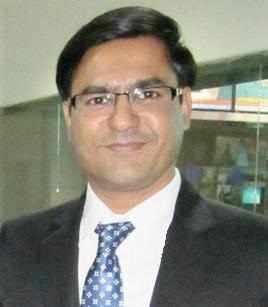In an election held on July 5, Masoud Pezeshkian was elected as Iran’s new president. Pezeshkian was elected in the second round of voting after no candidate received more than 50% of the votes – the required percentage to win a presidential election – in the first round held on June 28. Following the death of Ebrahim Raisi in a helicopter crash in May, Iran held a rush vote to choose a new president.
The presidential runoff election pitted Pezeshkian, a reformist and moderate, against Saeed Jalili, a hardliner. In Iran’s electoral system, the Guardian Council, a body of clerics and jurists overseen by Supreme Leader Ayatollah Ali Khamenei, selects presidential candidates. Although the ultimate power and authority in Iranian politics lies with Ayatollah Ali Khamenei, it is still important to consider what Pezeshkian’s victory means and whether his reformist image will prevail over Iran’s conservative political climate.
First, it is important to interpret the statistics of Pezeshkian’s victory. The turnout in this election was low, which is a regular feature of Iranian presidential elections. The turnout in this election was 40 percent in the first round, but rose to 49.8 percent in the second round. More than half of the 61 million eligible voters did not vote. In a country where more than 65 percent of the population is young, the low turnout reflects the general disinterest of the people, especially the young, in participating in the political process. The increase in turnout in the second round and Pezeshkian’s victory can be interpreted as the people choosing a reformist, but in reality the majority of voters remain skeptical of the Iranian electoral process. This means that Pezeshkian’s image as a reformist failed to attract the majority of Iranian voters.
Pezeshkian, who was elected President of Iran, said he would extend the hand of friendship to all people and open Iran to the world. Similarly, Pezeshkian holds moderate views on religious issues and opposes the forced implementation of religious rules and regulations on the population. In particular, he has criticized the morality police and promised to relax Iran’s compulsory headscarf law. Pezeshkian had called for accountability from the authorities for the death of Mahsa Amini, who was arrested for not properly covering her head and died in police custody in 2022.
Pezeshkian’s remarks about opening up Iran to the world are significant because relations between Iran and the West have remained tense for many years. Iran’s obsession with enriching uranium has been a major source of friction with the West. The Joint Comprehensive Plan of Action (JCPOA), commonly known as the Iran nuclear deal, between Iran and the P5+1 (US, UK, France, Russia, China, and Germany) created the possibility of de-escalation between Iran and the West. However, the unilateral withdrawal of the US from the deal in 2018 has derailed any prospects for peace between Iran and the West.
Pezeshkian supports reviving the nuclear deal. Ironically, his presidential opponent, Saeed Jalili, who was Iran’s former chief negotiator on the nuclear deal, has opposed any agreement with the West on the nuclear deal. Iran’s allies have congratulated Pezeshkian on his victory, but the West has yet to respond to this political development in Iran.
Pezeshkian may face difficulties even though he is a reformer. As mentioned above, in Iranian politics, Supreme Leader Ayatollah Ali Khamenei has the final say on all government matters. Although the presidency is not entirely ceremonial, the main role of the Iranian president is to implement the policies of the Supreme Leader. In addition to Khamenei’s authority, the Iranian parliament is dominated by hard-liners. This may make it difficult for Pezeshkian to implement reforms.
President Pezechkian will play a role in foreign and domestic policy and will also set Iran’s economic direction, but the supreme leader will retain authority over the police, army and Islamic Revolutionary Guard Corps.
The selection of Pezechkian may be an attempt by the Supreme Leader to present Iran as a friendly country to the West. However, Iran also has significant stakes in Middle East geopolitics, including its ongoing conflict with Israel. It is unlikely that Iran will recalibrate its approach to Middle East politics, which will ultimately lead to Western countries being reluctant to engage with Iran.
Pezezhkian’s liberal ideas could help Iran diversify its foreign relations and deepen engagement with the West, easing the economic hardships Iranians have faced over the past decade, but it’s unclear whether the supreme leader will actually follow through on these possibilities.
Disclaimer
The views expressed above are the author’s own.
End of article

